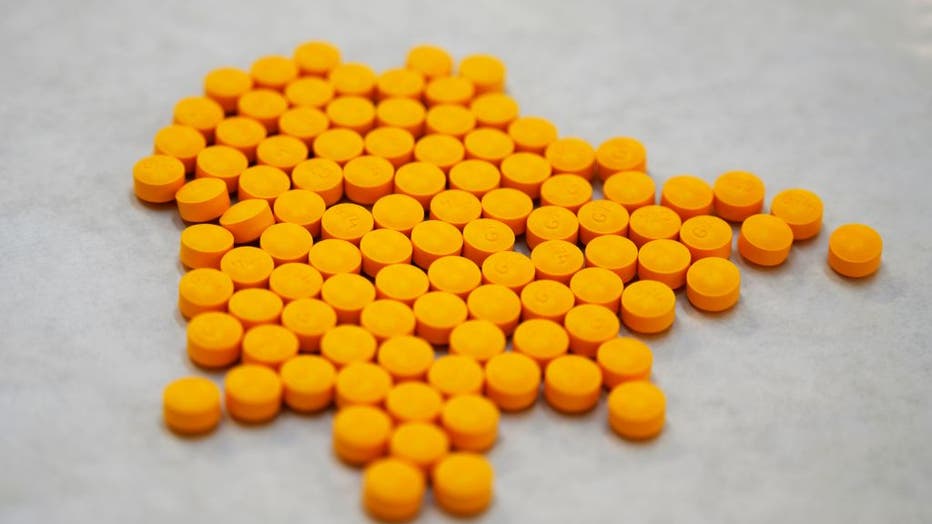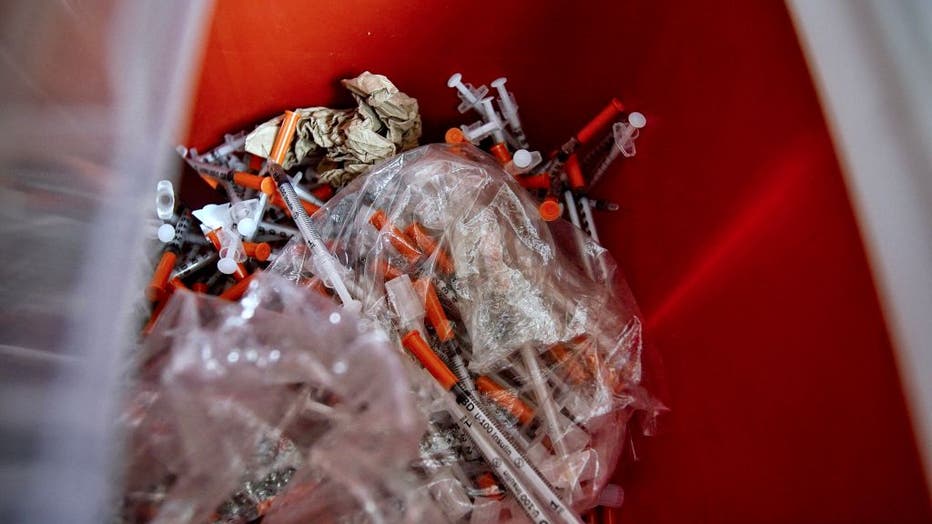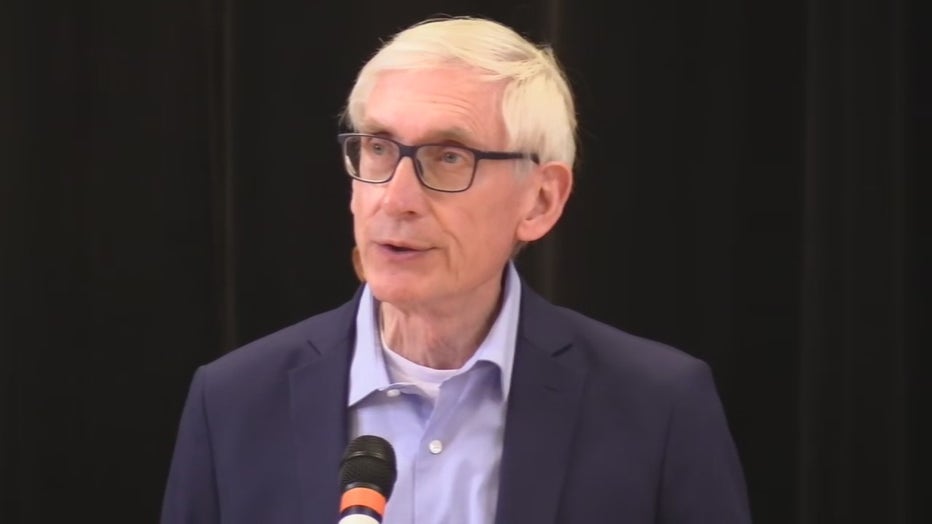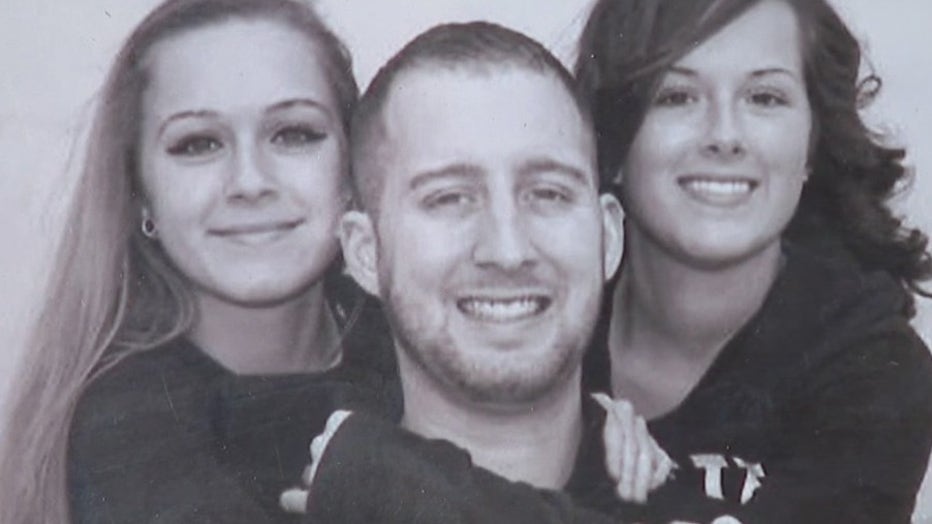Wisconsin fentanyl deaths up 97%, state health officials say
MADISON, Wis. - Wisconsin fentanyl deaths have increased by 97% since 2019, prompting state health officials to issue a public health advisory to warn about the number of deaths caused by drugs laced with synthetic substances. It's aimed at increasing awareness and getting everyone involved in preventing these preventable deaths. One Kenosha mother who lost her daughter to a fentanyl overdose says she wishes it happened sooner and hopes it helps.
The numbers from the DHS are alarming. From 2019 to 2021, the number of yearly fentanyl overdose deaths nearly doubled, with 651 in 2019 and 1,280 in 2021. Synthetic opioids (primarily fentanyl), were identified in 91% of opioid overdose deaths and 73% of all overdose deaths in the state in 2021.
Fentanyl is up to 50 times stronger than heroin and up to 100 times stronger than morphine, the DHS noted. Because it is strong and cheap to produce, people who manufacture illegal drugs use fentanyl to make other drugs more powerful and less expensive to make. Fentanyl can be added to pills, heroin, cocaine, methamphetamine and other drugs.
Steps taken to prevent fentanyl overdoses
In a news release Wednesday, Aug. 17 announcing the public health advisory, DHS officials laid out a series of steps that have been taken "to prevent unnecessary deaths."
Most recently, in March, Governor Tony Evers decriminalized fentanyl test strips to test a substance for the presence of fentanyl. Anyone who wants to get the test strips should contact the Wisconsin Addiction Recovery Helpline. While these strips are available around the state, a portion of the opioid settlement funds with drug manufacturers and distributors will be used to make the strips more widely available across Wisconsin.

(Photo by DON EMMERT/AFP via Getty Images)
SIGN UP TODAY: Get daily headlines, breaking news emails from FOX6 News
In January 2022, DHS held a series of online listening sessions to get ideas on how to best use opioid settlement funds so that the actions meet the specific needs of communities. More than 800 participated in the listening sessions or completed an online survey to share ideas.
The opioid settlement funds were awarded as part of agreements that Wisconsin Attorney General Josh Kaul entered into with pharmaceutical companies, settling the state’s legal claims. The DHS received its first $6 million payment on July 29 to begin using immediately, while the remaining $25 million is expected by the end of 2022.
In April 2022, Wisconsin was named the national leader in the annual Drug Take Back Day event, with nearly 60,000 pounds of unwanted medications being turned over for safe disposal.
People who use opioids, whether as a prescribed medication or recreationally, are encouraged to have naloxone available to reverse an opioid overdose. Naloxone is available without a prescription at pharmacies around the state.
Aug. 21 is International Fentanyl Awareness and Prevention Day. DHS will host a Facebook Takeover and Twitter storm that day to increase awareness of the issue. People can participate by sharing the posts, creating their own and by using the hashtags #DoseofReality and #fentanyl.

(Photo by AGNES BUN/AFP via Getty Images)
Other efforts include encouraging parents and caregivers to have talks with their kids about the risks of substance use to prevent future harm; encouraging safer use practices to reduce the harmful effects of opioid use; expanding quality treatment for an opioid use disorder and providing support for people in recovery from an opioid use disorder through collaborations with tribal nations, state agencies, county agencies and community-based service providers.
Evers, Kaul 'slam' GOP for delaying opioid settlement funds
In a separate statement Wednesday, Gov. Tony Evers and AG Kaul slammed Republicans on the Wisconsin State Legislature’s Joint Committee on Finance "for delaying a plan to use the first tranche of Wisconsin’s $31 million in settlement funds to combat the state’s opioid epidemic."
Evers' office noted the governor, in 2021, signed Wisconsin Act 57 which lays out how the opioid settlement money will be spent -- 30% to the DHS and 70% to counties and municipalities.
The law requires the DHS to submit a plan to the JFC for approval. If there's no objection from the JFC, the plan is considered approved and funds are released.

Gov. Tony Evers
According to Evers' office, on Wednesday, "a member of JFC once again objected to the state plan to immediately use available settlement funds to combat the state’s opioid epidemic. As no Democratic committee member objected to the plan, the objection could only have been raised by a Republican JFC member."
This is the second time in recent months JFC Republicans have objected to the state plan, Evers' office said, also doing so in April when the DHS submitted an initial plan to the JFC before receiving any settlement money in an effort to expedite the process.
"The opportunity to invest millions into getting people treatment, support and services does not come along every day," said Evers in the statement. "For these legislators to turn their backs on the people of Wisconsin, especially given increases in substance misuse and the mental and behavioral health challenges our state is facing today in the wake of the pandemic, it simply defies logic."
Evers' office offered additional statistics on drug overdoses in Wisconsin, noting the state's opioid crisis began in the late 1990s and has been evolving since, with an almost 900% increase in opioid overdose deaths between 1999 and 2018.
In 2020, during the height of the pandemic, the state saw a record high of 1,227 opioid-related overdose deaths.
Kenosha mother loses daughter to fentanyl overdose
Theresa Newman's daughter, Sarah Beckius, 27, died in November 2021.
"She was a great daughter," said Newman. "The biggest heart. We were always supposed to do that skydive. We never did."
Newman said it can be hard not to feel alone after going through a loss like this.
"There are so many of us out there, but no one talks about it," said Newman. "People are ashamed, and they shouldn’t be."

Newman said her daughter unknowingly took fentanyl.
"She thought it was a Percocet, and unfortunately, it killed her," said Newman.
"Those pills can look and resemble just like the legitimate prescription version of those," said Paul Krupski, DHS.
From counterfeit pills to cocaine, the DHS says the potent and hard-to-detect fentanyl and other synthetic opioids are showing up in more substances.
"It's easy to get numbed, at times, to numbers and statistics, but again, these are real families, real lives that are impacted," said Dr. Jasmine Zapata, DHS. "It’s going to take us all working together to end this. Everyone."

"I wish it would’ve been sooner," said Newman of the public health advisory. "I hope it helps."
Even without her daughter, Newman said she didn’t feel alone when she took the leap on Sarah's birthday.
"I really felt like Sarah was with me," said Newman.
She learned her skydive instructor, too, had lost a loved one to a drug overdose.
"My daughter’s life mattered," said Newman. "My instructor’s brother, his life mattered."
Newman said she knows there is strength in numbers.
"We need to do better," said Newman. "We, as a community."
To help fight back against the wave of opioid overdoses, Newman started Sarah's Hope and Recovery Foundation. Fox 6 spoke with her about the group in July. They're planning a Narcan training event in September and a golf outing on Saturday Oct. 1 at Brighton Dale Links.
Resources for those struggling with addiction
For more information about substance use prevention, treatment and recovery, the DHS invites you to visit the Dose of Reality webpages. Additional help can be found through the Wisconsin Addiction Recovery Helpline available 24/7. Call 211 or 833-944-4673 or text your zip code to 898211.

